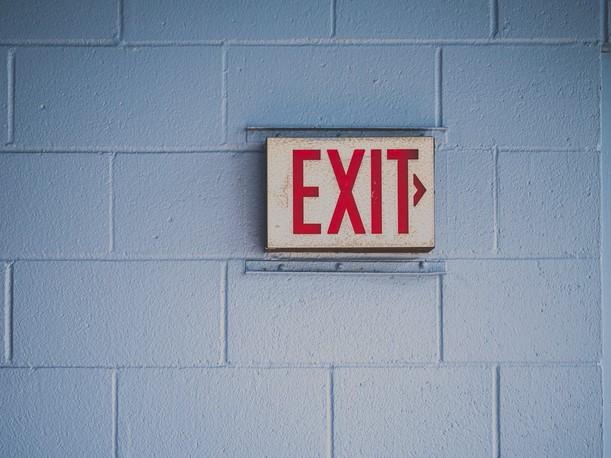We know that 30 to 50 per cent of PhD candidates don’t complete globally. Countries such as the UK and Australia, where about a quarter of students don’t finish their PhD, actually congratulate themselves on their efficient completions. While my day job involves trying to help more people finish on time, I also know that choosing to stop can sometimes be the right decision.
People quit their PhDs for a variety of reasons, including to pursue job opportunities, to focus on external life priorities or simply because they lose interest. Over the past two years, there have been even more disruptions than usual: researchers haven’t been able to travel or do fieldwork; they have had to give up in-person conferences and avoid busy labs and libraries; they got sick or the pandemic exacerbated existing health conditions; or their priorities changed.
Supervisors, candidates and universities need to be more open to having conversations about quitting PhDs. Why do candidates choose to quit, how many people do so and what happens to them afterwards? It’s almost impossible to get detailed, accurate data about completion rates. When people quit they leave the university, so we often don’t see what they do next. If we don’t talk openly about stopping, people who are considering it feel isolated and uncertain. But it isn’t rare, and supervisors are in a privileged position to recognise the signs early – and then, as appropriate, support their candidates as they successfully navigate away from the PhD.
- Sessional academics: how to balance the demands of teaching and research
- Fool’s gold: career advice for young, Black academics
- Researchers: fight back against your struggle with self-promotion
Academics don’t always like to acknowledge it, but your health, family, career and community are more important than any scholarly accolade. People generally think about quitting their PhDs for reasons including family responsibilities, mental health or their financial situation. Or they choose to leave because other opportunities come up. These can be rational, practical choices with sensible long-term outcomes.
After all, graduating with a doctorate is not the only pathway towards contributing to knowledge, discovering new information or being recognised as an expert. That incomplete doctorate might be suitable for a patent or to spin out into an industry application. Perhaps it makes sense to publish your findings in an academic article – or a public-facing book. Similarly, the skills that candidates have already developed in pursuing their research might be an asset in their job beyond academia.
It’s important for candidates to know that not finishing a PhD doesn’t make you a failure, and it doesn’t mean you’ll never have the opportunity to do a research degree in the future. Sometimes, now is not the right time or you’re not in the right field. You wouldn’t be the first person to return to academia after a decade in industry, or when your circumstances changed, or when your research project was safe to pursue again. The past two years have been particularly challenging for researchers who had to totally change their planned research projects. When it is just not possible to pursue the PhD you signed up for, it can be a valid decision to do something else instead.
However, I wouldn’t want to suggest that the only two options are gritting your teeth or leaving. Universities increasingly have opportunities for flexibility or support, which candidates should explore. Some adjustments are quite common if you ask around. It’s often possible to press pause on your candidature, take a leave of absence or change to part-time study. Work with the equity team or researcher development team to improve accessibility or get support. It might also be helpful to negotiate changes in the supervision team – realigning it to better support your methods, specialisation or preferences.
There are more drastic options, too. It’s possible to convert your PhD to a master’s by research. Candidates might even explore taking their project to another faculty, another university or another country where it fits better. Leaving your current situation might mean losing out on your funding or burning bridges or hurting feelings. It tends to require a lot of extra time, effort and work. It’s an extreme option, but if you’re already thinking about leaving, you are already considering radical action.
I recently wrote a book with Liam Connell and Peta Freestone, Your PhD Survival Guide, based on Thesis Boot Camp, our award-winning programme for helping get people over the thesis finish line. In our experience working with thousands of doctoral candidates around the world, non-judgemental conversations about quitting help people feel freed from having to pretend that everything is fine.
Supervisors, peers and mentors can also help identify what changes are possible to make or support candidates to weigh up their options and make a considered decision about whether to carry on or put down the doctorate, for now or for good, and pursue other priorities. PhD researchers are smart, resilient, persistent problem-solvers, and they contribute in so many ways to our world, whether or not they gain the title “doctor”.
Katherine Firth is lecturer in research education and development at La Trobe University in Melbourne, Australia, and a founding member of the Thesis Boot Camp team. Her most recent book on doctoral success is Your PhD Survival Guide: Planning, Writing and Succeeding in your Final Year with Liam Connell and Peta Freestone.
If you found this interesting and want advice and insight from academics and university staff delivered direct to your inbox each week, sign up for the THE Campus newsletter.




comment